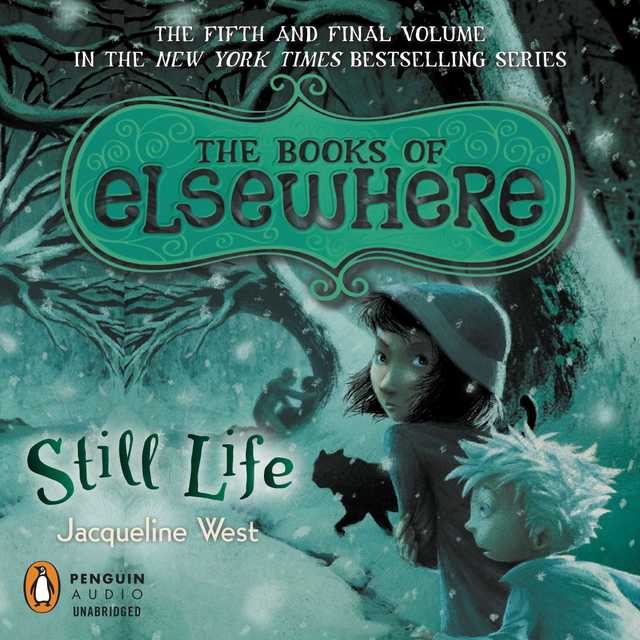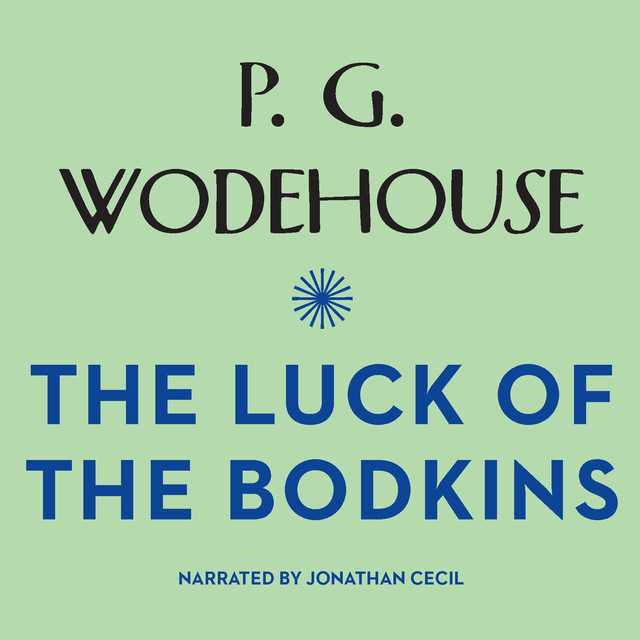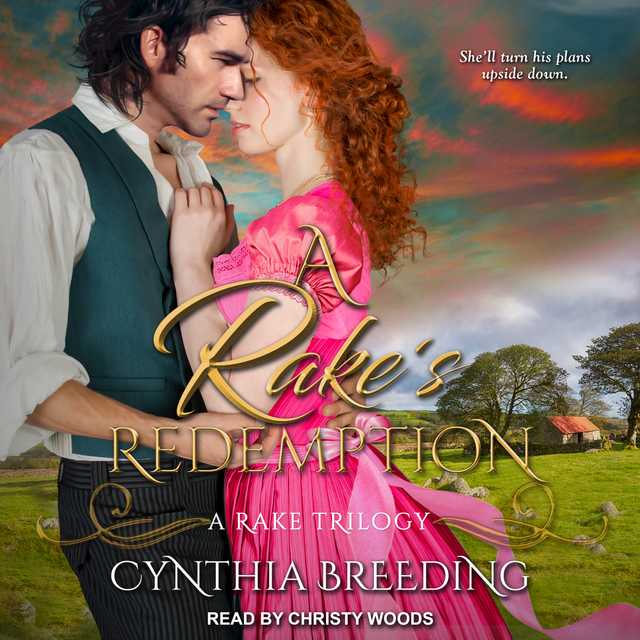Reading Like a Writer Audiobook Summary
In her entertaining and edifying New York Times bestseller, acclaimed author Francine Prose invites you to sit by her side and take a guided tour of the tools and the tricks of the masters and discover why their work has endured. Written with passion, humor, and wisdom, Reading Like a Writer will inspire readers to return to literature with a fresh eye and an eager heart–to take pleasure in the long and magnificent sentences of Philip Roth and the breathtaking paragraphs of Isaac Babel; to look to John Le Carre for a lesson in how to advance plot through dialogue, and to Flannery O’Connor for the cunning use of the telling detail. And, most importantly, she cautions readers to slow down and pay attention to words, the raw material out of which all literature is crafted.
Other Top Audiobooks
Reading Like a Writer Audiobook Narrator
Nanette Savard is the narrator of Reading Like a Writer audiobook that was written by Francine Prose
Francine Prose is the author of twenty-one works of fiction including, the highly acclaimed Mister Monkey; the New York Times bestseller Lovers at the Chameleon Club, Paris 1932; A Changed Man, which won the Dayton Literary Peace Prize; and Blue Angel, which was a finalist for the National Book Award. Her works of nonfiction include the highly praised Anne Frank: The Book, The Life, The Afterlife, and the New York Times bestseller Reading Like a Writer, which has become a classic. The recipient of numerous grants and honors, including a Guggenheim and a Fulbright, a Director’s Fellow at the Center for Scholars and Writers at the New York Public Library, Prose is a former president of PEN American Center, and a member of the American Academy of Arts and Letters and the American Academy of Arts and Sciences. She is a Distinguished Writer in Residence at Bard College.
About the Author(s) of Reading Like a Writer
Francine Prose is the author of Reading Like a Writer
More From the Same
- Author : Francine Prose
- Blue Angel
- A Changed Man
- My New American Life
- Lovers at the Chameleon Club, Paris 1932
- Goldengrove
- Publisher : HarperAudio
- Abraham
- American Gods [TV Tie-In]
- Dead Ringer
- House of Sand and Fog
- Prey
Reading Like a Writer Full Details
| Narrator | Nanette Savard |
| Length | 9 hours 2 minutes |
| Author | Francine Prose |
| Category | |
| Publisher | HarperAudio |
| Release date | April 10, 2007 |
| ISBN | 9780061287374 |
Subjects
The publisher of the Reading Like a Writer is HarperAudio. includes the following subjects: The BISAC Subject Code is Essays, Literary Collections
Additional info
The publisher of the Reading Like a Writer is HarperAudio. The imprint is HarperAudio. It is supplied by HarperAudio. The ISBN-13 is 9780061287374.
Global Availability
This book is only available in the United States.
Goodreads Reviews
Justin
July 29, 2018
My highlighter ran dry as I eagerly noted large swaths of wisdom and great lines from the many excerpts. It's not so much a guide to writing as it is guide to writer mindset. At the very least, it's a celebration of books and the art that goes into creating them. Fair warning, your to-read list (and Amazon cart) will overflow after only a few chapters.With that being said, there are plenty of dull moments. Easily 50% of the book is wasted on setting up context for an excerpt that may be hit-or-miss. Prose seems to have little interest in literature written later than 1900 or in a language that's not Russian. I'm all for classics, but some variety wouldn't hurt. One particular failure occurred in the "Gestures" chapter where she tsk-tsked unnecessary actions in dialogue but provided only one weak example of how this can be done effectively.In the end, though, if you're as nerdy as I am for books, writing, and books on writing, you're going to have a good time.
Laura
September 07, 2008
According to Francine Prose, creative writing cannot, in fact, be taught, but would-be writers can learn by studying the masters -- among others, Bruce Wagner, Jonathan Franzen, Alice Munro, F. Scott Fitzgerald, and Scott Spencer. Prose is a proponent of New Criticism -- the philosophy that works can be understood only by reading of the work as an entity unto itself, and not by reference to external indicia, like the author's life or political beliefs. In keeping with that philosophy, Prose selects passages that she considers to be prime examples of effective writing, encouraging readers to linger over the words and savor them, rather than speed reading, and to read closely, with careful attention to each word and phrase (a technique you might have encountered as "close reading").Above all, Prose admires the well-wrought sentence, the result of a painstaking, thoughtful use of language, which in turn she likens to painting or composing music. To show readers how to appreciate the writer's craft, Prose highlights passages from various authors, examining closely how their language creates characterization, rhythm, or mood. Though you might be a bit dubious about this approach at the beginning of this book (didn't we learn how to do this close reading stuff a while ago, in school?), Prose manages to excite, not bore, with her explication of how to discern the many minute decisions that authors have to make with every word, and how those decisions shape a work and a reader's reaction to the plot and characters. By the end, I was eager to go and read many of the books on the list of reading she considers essential -- her "Books to Be Read Immediately."Of course, as with all such lists, people will take issue with inclusion of certain books and exclusion of others. Some people (I'm talking to you, Bookslut) have criticized this book for its undue attention to "dead white men," presumably because Prose is overly taken with the likes of John Cheever, Charles Dickens, and Anton Chekhov. This criticism is, not to put too fine a point on it, really fucking stupid. I'm all for inclusion and diversity, but good writing is good writing. And yes, Prose focuses mainly on white men, but she also pays close and extended attention to Jane Austen, ZZ Packer, Louisa May Alcott, Mavis Galant, Tatyana Tolstaya, Diane Johnson, and James Baldwin.On the whole, Prose provides an entertaining and wise take on why good writing can move a reader.
PattyMacDotComma
June 05, 2021
5★“You will do yourself a disservice if you confine your reading to the rising star whose six-figure, two-book contract might seem to indicate where your own work should be heading. I’m not saying you shouldn’t read such writers, some of whom are excellent and deserving of celebrity. I’m only pointing out that they represent the dot at the end of the long, glorious, complex sentence in which literature has been written.”That’s a piece of advice for would-be or budding writers, but it’s just as valuable for readers. She is exasperated by new writers who have not read a lot and widely. I’m fond of those writing stars who are “excellent and deserving of celebrity”, and I’m susceptible to getting caught up in the enthusiasm for those who offer something a little different or catchy. But the enthusiasm is often short-lived.“With so much reading ahead of you, the temptation might be to speed up. But in fact it’s essential to slow down and read every word.”OK. That’s where the rubber hits the road and where the excellent writers are going to leave the would-be copycats in their dust. My tastes are eclectic and dependent on mood and circumstances. I imagine it’s the same for most people. Even professional critics must have some days when they are less snarky and more charitable towards light commercial fiction than others.The author leans towards Literature (with a highbrow capital L) and is a serious fan of Tolstoy, Dostoevesky, Chekhov, and Nabokov. She uses their short stories in the classes she teaches, and she quotes a fair bit of Nabokov about literature. Chekhov is a firm favourite.“Reading Chekhov, I felt not happy, exactly, but as close to happiness as I knew I was likely to come. And it occurred to me that this was the pleasure and mystery of reading, as well as the answer to those who say that books will disappear. For now, books are still the best way of taking great art and its consolations along with us on a bus.”I assume by this that she means books as a form of story-telling and communication, not as a physical object. She doesn’t mention the various forms books take – printed, digital, audio, or serialised (as some of the Charles Dickens books were). She is a fan of the short story, which is great news for me, because I am too. She discusses the various things authors need to consider, and they are the same things that we readers judge a book by. (I love a good cover, of course, but they can be changed and often are.) WordsSentences Paragraphs NarrationCharacter Dialogue Details GestureShe prefaces these chapters with one called Close Reading, which encourages you to do part of the work as a reader, as she said above: “Slow down and read every word.”There are books where I admittedly skim parts that are distracting me from the story (and I usually mention that in my reviews), and it’s a good bet that the book isn’t going to be up there with the memorable ones. “reading quickly— for plot, for ideas, even for the psychological truths that a story reveals—can be a hindrance when the crucial revelations are in the spaces between words, in what has been left out.”You miss the subtleties, the nuances, the slight changes in tone or mood or atmosphere. Of course, if it’s a complex thriller, you might just want to know how it turns out, but a good writer will keep you reading and thinking about the “spaces between the words”.Dialogue in a book shouldn’t sound like real speech . . . “Because what is dialogue, after all, but the speech that could only come from the mouth of one character in all of fiction, and from the mind of one writer?”. . . and characters don’t have to be likeable.“Reading all of Patricia Highsmith’s novels in succession, as I did one summer, provides a sustained, enthralling descent into the dark crannies of the minds of a group of appalling psychopaths. I read one book and then the next, sorry when I had finished each one. Not for one second did it occur to me to stop reading because so many of her protagonists are not only loners and misfits, but cold-blooded killers.”It seems that each time she teaches a class about a ‘rule’ of good writing, a Chekhov story will break the rule, so much so that she questions everything.“And this is what I’ve come to think about what I learned and what I taught and what I should have taught. Wait! I should have said to the class: Come back! I’ve made a mistake. Forget observation, consciousness, clear-sightedness. Forget about life. Read Chekhov, read the stories straight through. Admit that you understand nothing of life, nothing of what you see. Then go out and look at the world.”I don’t have the same connection with Chekhov that the author does, but I respect her advice about reading and writing (although the latter I’ll leave to others). It’s helpful in identifying why some books appeal to me and other, often popular books, leave me cold.At the end, she lists 117 “BOOKS TO BE READ IMMEDIATELY”. The full list is here:https://www.bookofjoe.com/2006/09/117...This website shows these books with covers, a little more enticing than a list.https://www.listchallenges.com/franci...I think the upshot of it all is to READ READ READ before you write. There are lots of rules, but special writers can safely break them. If you’re a writer, perhaps it’s advisable not to break too many too soon!
Lewis
February 26, 2013
Reading Like a Writer has certainly made me a better reader, and perhaps a better writer. I was worried that "reading like a writer" would make reading more of a chore and less enjoyable. Not so. For me, it enhances my reading pleasure to stop every once in a while and consider what the writer is doing, and why, and how well. This approach is very helpful in editing my own writing.I have accumulated many thoughts about writing, from Francine Prose and other sources, on my author blog. These thoughts are organized and linked by topic ... see ... http://lewweinsteinauthorblog.com/201.... My GR friends are welcome to browse and to comment. Here are the topics ... so far ...* beginnings* character development* character development … Daniel Silva on Gabriel Allon* conflict* dialogue* endingsHISTORICAL FICTION * historical fiction* historical fiction … Reading and Writing Historical Fiction by Sue Peabody* historical fiction … Blending Fiction and History: What Works? What Doesn’t? by Paula Fleming* historical fiction … in Eye of the Needle by Ken Follett* pace* plot* POV and voice * process … in Write Away by Elizabeth George* process … an interview with Elizabeth George … Demystifying the writing process* reflections on writing* scenes* setting * surprise * suspense & tension* techniques * theme
Fabian
March 27, 2017
Oh, these nuggets of wisdom from popular producing writers. First, it was King and his wackiness (only 2 drafts per novel? HOLY S***!), & sincere cheers (he wants you to succeed). Then JCO, even MORE PROLIFIC (if that can be fathomable) than King, telling you to WRITE YOUR HEART OUT (and basically to keep on keeping on--a writer always starts off as a reader, undoubtedly). Finally, Prose gives us an exhaustive delve into the greats themselves: 100 Years of Solitude, (gasp!) Revolutionary Road, Pedro Paramo, Pride and Prejudice, et al. Sometimes this becomes a hindrance: she gives us selections of select novels to give us a select lesson on plot, or sentence, or paragraph or character or details--too specific though enlightening. So many things go into the construction of fiction--I found myself being thoroughly overwhelmed. King and Carol Oates gave us a confidence that Prose pretty much drowns in academia's gastric juices. I will not, however, say that this was a complete waste of time. On the contrary, after reading this, yet ANOTHER POV is added on to literary knowledge (!!!!): it is imperative to know why writers write in the first place.
Conrad
November 01, 2008
Overall very good. I tend to skim books a lot when I get to parts that bore me, and then I end up falling into the habit and skimming all the time. Reading this restored the pleasure and argued well for the necessity of careful, time-consuming reading (I have no idea how Francine Prose has had time to read everything she's read.)My favorite chapters by far were the ones on dialog and sentences. Writing dialog is really tricky, and she doles out a lot of good advice.(Once, in college, I brought a tape recorder with me in a pocket when I was having dinner with this girl I'd known since high school. She was and is a deft conversationalist, and I wanted to catch the nuances and rhythms of her speech and see what it looked like on paper. We sat down at the cafeteria and she started telling me about how her dad was divorcing her mom, and how she herself had been pregnant the month before and had an abortion without telling anyone. I immediately took out the tape recorder and turned it off. I'm surprised she's ever spoken to me again.)Some of the others - particularly "Gestures" and "Paragraphs" - did not pack the same punch and excerpted too much, ending up like laundry lists of passages Francine Prose liked. (I found "Paragraphs" almost unbearably inconsequential. A summary: you can break a paragraph in different places. It affects the pacing of what you write. Revolutionary.) Prose herself is a judicious and open-minded reader, and doesn't fall for the weird romanticism that a lot of writers bring when they give advice. (The sight of a keyboard had better give you a raging hard-on; if you ever write fewer than 93 drafts, you are completely hopeless; spend at least four hours pondering each comma; real writers don't have friends or pets or parents or plants or anything but a desk and a pen and a stack of legal pads; blah blah blah.)
Carla
March 13, 2019
Livro enriquecedor, ideal para bibliófilos que, após a leitura, não conseguirão conter o impulso de acrescentar alguns novos exemplares à sua biblioteca pessoal.
Shannon
July 29, 2008
I was eagerly awaiting the paperback edition to read this, it sounded so interesting. And it was. Is. Grr. Don't worry, it's not about grammar or punctuation. This is about reading for enjoyment and also for inspiration, motivation, guidance, example.... Divided into chapters on words, sentences, paragraphs, narration, dialogue, gestures - you get the picture - Prose (isn't that the most perfect name?!) uses analysis, anecdotes and extensive quotes to bring books and short stories to life. The first chapter, on Close Reading, was very reassuring and gave me cause to be quite pleased with myself too. (Writers are perhaps the most needy of people, constantly needing reassurance and a bolstering of the ego.) She offers advice to new writers on reading books like 'professional' writers do: I read closely, word by word, sentence by sentence, pondering each deceptively minor decision the writer had made. And though it's impossible to recall every source of inspiration and instruction, I can remember the novels and stories that seemed to me revelations: wells of beauty and pleasure that were also textbooks, private lessons in the art of fiction. ... What writers know is that, ultimately, we learn to write by practice, hard work, by repeated trial and error, success and failure, and from the books we admire. This is so true. From the time I could read - also the time I could write - I was fascinated by how stories were created, formed, structured, plotted. I was the only kid in my class, if not my entire primary school, who wrote what the teachers called "sagas" (a new word for me): very involved stories, complete with dialogue, plot, beginning, middle, ending, and illustrations. Even my punctuation - learnt from reading - was spot-on. I'm sure they weren't particularly original, but they satisfied a great, urgent need in me, and still do. I also learnt - and continue to learn - vocabulary: I can still remember discovering the word "melancholy" from a book I was reading in grade 5, and it was fun to work out the meanings of new words from the context in which they were used. Sadly, this means I often struggle to give a dictionary-definition of a word; I'm more likely to put it in a sentence and expect people to get it like I do. Better get better at that if I want to be a teacher! Different books got me started on experimenting with different styles. After reading the Silver Brumby books, for instance, I practiced writing description, creating pieces that weren't even complete short stories, often discarded, like sketches. After reading Georgette Heyer's Regency romances (don't knock 'em till you've read 'em!), I practiced dialogue - she has a great knack for it. And so on. The works that Francine Prose quotes from are a little more sophisticated than the ones I used growing up, but the principle is the same. Her chapters on gestures and details is a great reference for me - they're often overlooked aspects in my writing, that still needs a lot of work. I fear cliches, which are almost unavoidable. She leans towards Chekov, Flannery O'Connor, Joyce, Flaubert, Kleist, Alice Munro, Melville, Austen, Paula Fox and Henry Green, for example - only a few of the books she mentions or uses in analysis have I read. A particularly fun chapter, Character, starts with an anecdote of the time when, slightly out of mischief, she assigned a story by Heinrich von Kleist called The Marquise of O- to a group of students in Utah: all mormons, which was about a lady who was raped by the chivalrous knight while unconscious after he'd saved her from a fire (during a battle), and so on, only to discover that the students came alive in their discussions and talked about the characters like they knew them personally. The problem with this book is it gets you so impatient not only to start reading these works of literature, but also to go back over your own writing and see what traps, if any, you've fallen into, or how you can lift up a passage of dialogue or even reveal your characters in a different way. It's definitely one of the better writing guides I've come across - and the only one I've ever bothered to read, since it's an informal guide at best, not at all condescending, and lacks a superiority complex. Prose loves to read as much as she loves to write, and teaches as well, and has a real talent for opening up an otherwise dry passage to the treasures going on in the inner workings. What Prose also mentions is that there are no rules, that every time she tried to give advice to her students such as Don't write from the point of view (first person) of someone who dies in the story, she finds a story - often by Chekov - that contradicts that rule, and works. In this sense, writing is a very distinct artform: you learn how to do it "properly", just as you learn how to draw a face with perfect proportions, before you go all Picasso on it and have the eyes sticking out the side and the nose upside-down. Perhaps an absolute genius would skip that learning stage, but if we do it's like - what's the expression? Learning to run before you can walk? It takes time, and patience, and hard work, and perseverance, but if you have the passion it's not painful in the slightest. And if you lose momentum, or get writer's block, Prose has some great advice: to have a shelf put aside for especially inspiring novels, to pick up one author who excels at, say, dialogue, and read a passage at random for inspiration. She even has a list of "Books to be read immediately" at the end of the book. For myself, I can say that this works, though I usually read the entire book to get into the flow of a style. Even when working on my fantasy story, though, I often prefer to read literature. I find it helps to stop me from slipping into cliche-mode.
C.J.
September 03, 2008
I really enjoyed this book and the author's focus on the finer points of writing. She references dozens of classic works and discusses word choice, sentences, paragraph structure, voice and many other fundamentals of writing fiction.Her comments are geared to literary writers and often I felt insulted (as a lowly thriller writer). At one point she says, "Opening a mass-market thriller at random," and she quotes a horrible passage that I didn't recognize. She's telling us that mass-market thriller writers are lousy writers. I felt like a student in one of her fiction classes.I would recommend this book for serious writers and those who love classic literature, though readers may find this book very dry.
Julie
May 30, 2010
This useful and engaging book is wisely divided into chapters of the key structures of literary fiction: Words; Sentences; Paragraphs; Narration; Character; Dialogue; Details; Gesture. In this way, an initial reading can provide a foundation, but the chapters remain as toolbox to open when a particular writing challenge presents itself. In addition, Prose expounds upon her own particular literary Eurekas in chapters devoted to reading for inspiration and "courage," as well as an extensive list of works she exhorts the reader to consume as soon as is possible.The tools that shone most brightly perhaps reveal more of me as a reader and writer than of Prose as the author. I just dug the sections on words, sentences and paragraphs; these are what turn me on the most when I read brilliant writing. I love the individual pieces that create the puzzle almost more than the puzzle itself. Each is unique and the skill is in putting them together to create a seamless work of art. Dialogue scares the bejesus out of me, so I pored over this section, looking for the key. I became lost in the excerpt of Scott Spencer's A Ship Made of Paper, a copy of which I've got to find, soon, so I can see how things turn out. Ms. Prose has a preference for the Russian greats: Kafka, Chekhov, Tolstoy, Dostoyevsky, Gogol; 18th/19th century Western classics: Austen, Bronte, Dickens, Eliot, Flaubert, James, Melville, Proust. She references 20th century rebels like Joyce, Woolf, Hemingway, Fitzgerald, Marquez, Nabokov, Salinger, Yates and a slew of writers I've never encountered, among them Henry Green, Denis Johnson, ZZ Packer, and Rebecca West. Several of Prose's literary examples failed to light any fire in me. Others, like the scenes from Katherine Mansfield's The Fly and Heinrich von Kleist's The Marquise of O-- were mesmerizing. I've read perhaps a third of the books or authors in her recommended list but I'd add only a handful of others to my TBR list, primarily the Russians, as well as rereads of Hemingway, Dickens, Trevor. But never will anyone convince me- not Oprah, not Francine Prose- that Gabriel Garcia Marquez is anything but a gigantic yawn. I've tried to muscle through GGM, I really have. Life is too short. Must save precious moments to read, reread and savor Austen. Although I might not appreciate many of the works or the authors that Prose cites as masters of their craft, I am now inspired to explore the novels and short stories I do admire in new ways. And to perhaps create a meaningful sentence or paragraph of my own.
Robert
November 11, 2008
Reading Like a Writer synthesizes Francine Prose's lifetime's experience in literature--as a reader, a writer, and a teacher. It's a splendid book because it is so learned, well-written, and insightful, presenting fiction (that's Prose's literary focus) in its component guises of words, sentences, paragraphs, narrative strategies, and telling details.Francine Prose emphasizes close reading to best appreciate literary effects. She's not a member of a critical school; that never made sense to her. What made sense, from early on, was pondering James Joyce's diction, the rhythms of Tim O'Brien's incantatory sentences, the cunning of Isaac Babel's paragraphs, and the mastery of Chekhov's revealing details. In all cases, and many more (she cites Tolstoy, Cheever, Richard Yates, Henry Green, Kafka, Juan Rulfo, etc.) Prose illustrates her points with excerpts that go on as long as necessary. There are instances of such excerpts lasting a page or even two pages.Yet this isn't a textbook; it's more a summary of discussions, observations, and debates that have gone on in writing workshops and literary seminars she's conducted at colleges and universities across the US for decades.Prose excels in offering potential "rules" for writing vivid, compelling fiction, and then debunking those rules. Her penultimate chapter, focused on Chekhov, is a study in what might be called "the exceptionalism of genius." I found Prose's defense of the sufficiency of fiction unto itself--not needing excessive theoretical interpretation--effortlessly compelling. Without belaboring the point, she frequently adverts to the ways in which fiction points in directions beyond reason and fact toward paradoxically convincing uncertainties. Fiction is best when it's definite and concrete, yet it is never a math problem with a rules-based answer to the calculations it provokes.The final chapter focuses on how hard it has been for writers like Flaubert, Babel, and others to fulfill their sense of inspiration. Prose makes good use of their letters and diary entries to substantiate the utter uncertainty of a given story or novel, word by word, sentence by sentence.This book will make better readers of writers, and better writers of fiction. It's written with humility and humor. A lot of fun.As a bonus, there is a list at the very end of the book suggesting titles that must be read immediately...as if your life depended on it. This is a handy guide for revisiting Prose's observations in the context of complete works, most of them masterpieces, large and small.
Marcus
June 30, 2020
It is more than a month since I finished this book, but it is hard to do justice to in a review, since all of it is so very good. It is a book to read multiple times and then chase all the references to other books contained within and read those too.This is a wonderful book – there are so many examples, so many passages to read, all of which draw you into another new story and leave you wanting to read them all.The only downside of having a book so very rich in detail is that you are left not knowing which examples to draw out to illustrate how good it all is. My own little trick – and I know there are people out there who will hate me for this – is to fold page corners to mark those passages I found noteworthy. There were 14 folds after I had finished the book; there could have been many more.I love the way the book starts by comparing three beginnings – from Flannery O’Connor A Good Man is Hard to Find, then Katherine Mansfield’s The Daughters of the Late Colonel and finally Alice Munro’s Dulse. We look at the first sentence of each piece – what it tells us and how it sets the tone. For O’Connor it is “The grandmother didn’t want to go to Florida.” For Mansfield it was “The week after was one of the busiest weeks of their lives.” And for Munro it was a lengthier, “At the end of the summer Lydia took a boat to an island off the southern coast of New Brunswick, where she was going to stay overnight.” Francine Prose then proceeds to pick apart each piece, noting the way the writers suggest things, hide things and uses tell-tale techniques. Munro, for example, will often name her characters in the first or second line. There is a priceless observation of Flannery O’Connor using the word ‘aloose’ to suggest a southern dialogue, suggesting but not bogging the text down with lots of annoying apostrophes or dropped gs like shootin’ or cussin’. Hints like this abound.The whole book is littered with gems. This one concerns paragraphs. “A new paragraph is a wonderful thing. It lets you quietly change the rhythm, and it can be like a flash of lightning that shows the same landscape from a different aspect.” Isaac Babel.Prose states that it is necessary to quote longer passages from Philip Roth – in order to show the energy and variation and how they shift in length and energy. She quotes from American Pastoral:“This is how successful people live. They’re good citizens. God is smiling down on them. There are problems, they adjust. And then everything changes and it becomes impossible.Nothing is smiling down on anybody. Who can adjust then? Here is someone not set up for life’s working out poorly, let alone for the impossible. But who is set up for the impossible that is going to happen? Who is set up for tragedy and the incomprehensibility of suffering? Nobody. The tragedy of the man not set up for tragedy – that is every man’s tragedy.”When discussing detail, I found these observations very useful. “Details are what persuade us that someone is telling the truth – a fact that every liar knows instinctively and too well. Bad liars pile on the facts and figures, the corroborating evidence, the improbable digressions ending in blind alleys, while good or (at least better) liars know that it’s the single priceless detail that jumps out of the story and tells us to take it easy, we can quit our dreary adult jobs of playing judge and jury and become as trusting children, hearing the gospel of grown-up knowledge without a single care or doubt.” After telling us about Kafka’s ability to make us believe that Gregor Samsa is a beetle, then we get this:“Great writers painstakingly construct their fictions with small but significant details that, brushstroke by brushstroke, paint the pictures the artists hope to portray, the strange or familiar realities of which they hope to convince us; …Often, a well-chosen detail can tell us more about a character – his social or economic status, his hopes and dreams, his vision of himself – than a long explanatory passage.”Francine Prose gives us so many writing tips. In the section about gesture she writes: “Writers cover pages with familiar reactions (her heart pounded, he wrung his hands) to familiar situations. But unless what the character does is unexpected or unusual, or truly important to the narrative, the reader will assume that response without having to be told.”And another example:“One could say that everything that happens in Philip Roth’s Goodbye, Columbus can be predicted, more or less accurately, from the succession of swift gestures that begin the novel. Much of what we need to know about the lovers at the book’s centre is succinctly telegraphed by the entitled, sexually confident insouciance with which privileged Brenda Patimkin asks the novel’s narrator – a stranger who is merely a day guest at her country club – to hold her glasses before she dives in the pool, and then, knowing he is watching, adjusts her bathing suit:The first time I saw Brenda she asked me to hold her glasses. Then stepped out to the edge of the diving board and looked foggily into the pool; it could have been drained, myopic Brenda would never have known it. She dove beautifully, and a moment later she was swimming back to the side of the pool, her head of short-clipped auburn hair help up, straight ahead of her, as though it were a rose on a long stem. She glided to the edge, and then was beside me. “Thank you,” she said, her eyes watery though not from the water. She extended a hand for her glasses but did not put them on until she turned and headed away. I watched her move off. Her hands suddenly appeared behind her. She caught the bottom of her suit between thumb and index finger and flicked what flesh had been showing back where it belonged. My blood jumped.”“Properly used gestures – plausible, in no way stagy or extreme, yet unique and specific – are like windows opening to let is see a person’s soul, his or her secret desires, fears or obsessions, the precise relations between that person and the self, between the self and the world, as well as the complicated emotional, social and historical male female choreography that is instantly comprehensible…” Prose devotes a whole chapter to “Learning from Chekhov”. She quotes from the story Volodya in which his character picks up a gun in the very last paragraph and blows his head off for no reason. “For, as anyone who has ever attended a writing class knows, the bottom line of the fiction workshop is motivation. We complain, we criticize, we say that we don’t understand why this or that character says or does something. Like method actors, we ask: What is the motivation> OF course, all this is based on the comforting supposition that things, in fiction as in life, are done for a reason. But here was Chekhov telling us that, as we may not have noticed, people often do terrible and irrevocable things for no good reason at all.” A wonderful book brim full of ideas, thinking and provocation, as well as a multitude of quotes from books that you now feel compelled to go away and read. Brilliant.
Most Popular Audiobooks
Frequently asked questions
Listening to audiobooks not only easy, it is also very convenient. You can listen to audiobooks on almost every device. From your laptop to your smart phone or even a smart speaker like Apple HomePod or even Alexa. Here’s how you can get started listening to audiobooks.
- 1. Download your favorite audiobook app such as Speechify.
- 2. Sign up for an account.
- 3. Browse the library for the best audiobooks and select the first one for free
- 4. Download the audiobook file to your device
- 5. Open the Speechify audiobook app and select the audiobook you want to listen to.
- 6. Adjust the playback speed and other settings to your preference.
- 7. Press play and enjoy!
While you can listen to the bestsellers on almost any device, and preferences may vary, generally smart phones are offer the most convenience factor. You could be working out, grocery shopping, or even watching your dog in the dog park on a Saturday morning.
However, most audiobook apps work across multiple devices so you can pick up that riveting new Stephen King book you started at the dog park, back on your laptop when you get back home.
Speechify is one of the best apps for audiobooks. The pricing structure is the most competitive in the market and the app is easy to use. It features the best sellers and award winning authors. Listen to your favorite books or discover new ones and listen to real voice actors read to you. Getting started is easy, the first book is free.
Research showcasing the brain health benefits of reading on a regular basis is wide-ranging and undeniable. However, research comparing the benefits of reading vs listening is much more sparse. According to professor of psychology and author Dr. Kristen Willeumier, though, there is good reason to believe that the reading experience provided by audiobooks offers many of the same brain benefits as reading a physical book.
Audiobooks are recordings of books that are read aloud by a professional voice actor. The recordings are typically available for purchase and download in digital formats such as MP3, WMA, or AAC. They can also be streamed from online services like Speechify, Audible, AppleBooks, or Spotify.
You simply download the app onto your smart phone, create your account, and in Speechify, you can choose your first book, from our vast library of best-sellers and classics, to read for free.
Audiobooks, like real books can add up over time. Here’s where you can listen to audiobooks for free. Speechify let’s you read your first best seller for free. Apart from that, we have a vast selection of free audiobooks that you can enjoy. Get the same rich experience no matter if the book was free or not.
It depends. Yes, there are free audiobooks and paid audiobooks. Speechify offers a blend of both!
It varies. The easiest way depends on a few things. The app and service you use, which device, and platform. Speechify is the easiest way to listen to audiobooks. Downloading the app is quick. It is not a large app and does not eat up space on your iPhone or Android device.
Listening to audiobooks on your smart phone, with Speechify, is the easiest way to listen to audiobooks.

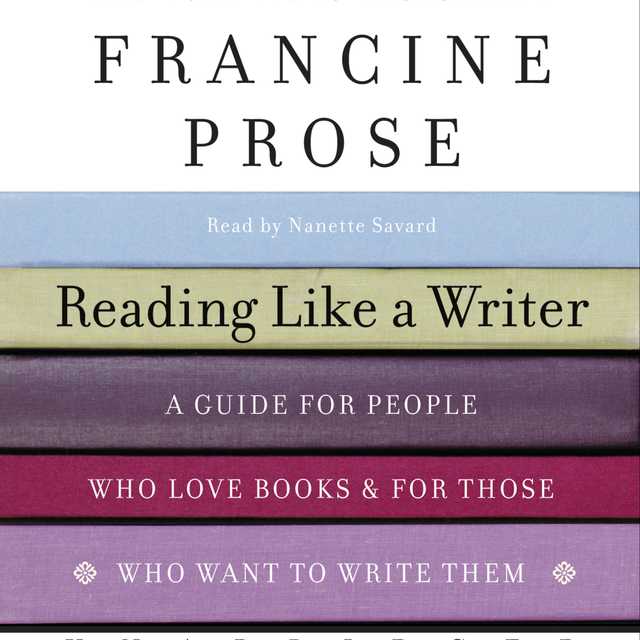









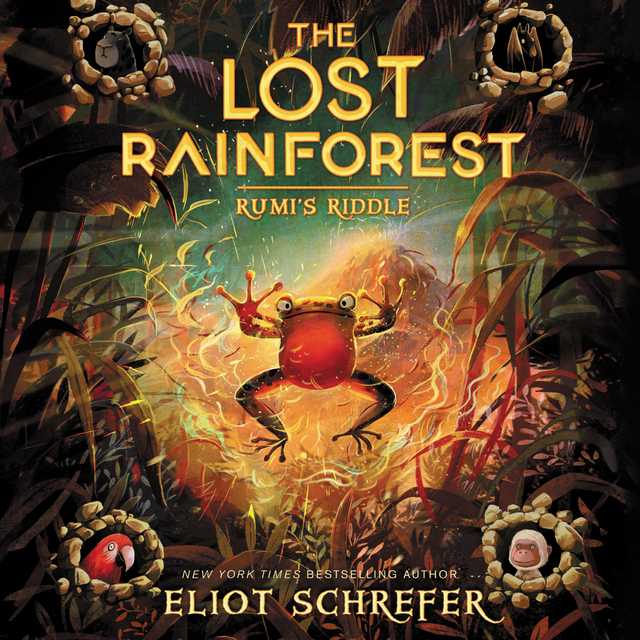
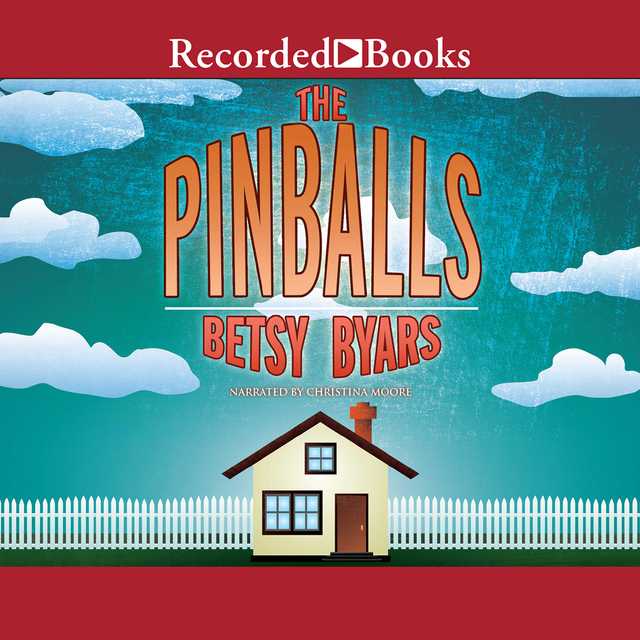
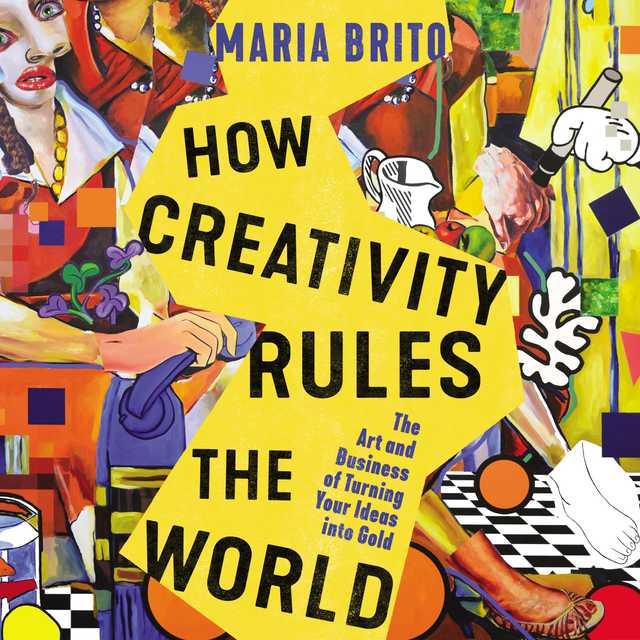
![The Blood Mirror (2 of 2) [Dramatized Adaptation]](https://speechify.com/audiobooks/wp-content/uploads/sites/29/2023/06/pr_eaudio_9781648794582_640px.jpg)
